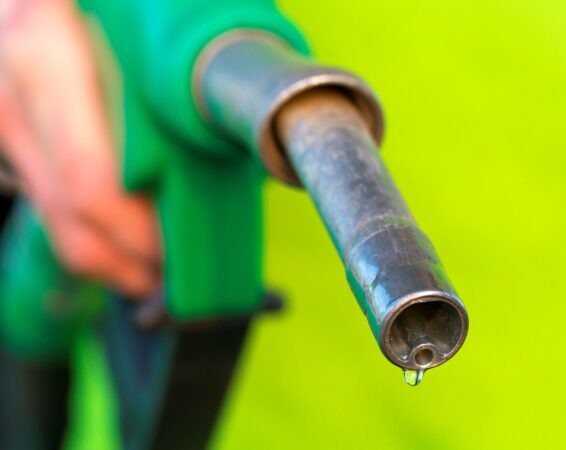Diesel truck efficiencies deserve to be promoted
“Roger that, Ghost Rider. I’m chewing up the boulevard at a high rate of fuel consumption. We’ll catch you on the flip, 10-4.”
I may have used phrases like “a high rate of fuel consumption” a time or three dozen in my 33-plus-year trucking career. Older drivers like myself who watched trucking movies loved using our peculiar slang.
That particular saying meant that I was traveling fast. In days gone by, faster usually meant burning more fuel. I was pondering that recently when I was rolling home. Idling along at 1200 rpm, my truck Nessy was sipping a mere 24.3 liters per 100 km at 100 km/h. That translates to 9.680 mpg by U.S. measures. I was pretty happy with that, but I was trying to hit 10 mpg before the day was up. The best I got to was 9.8 mpg before city driving near the terminal brought me back down a little.

Hitting 10 mpg today isn’t as unrealistic as it was in 2007. The gains we have made — and by we, I mean the manufacturers and drivers — are impressive.
Yet we keep getting hit as if we’re largely responsible for the climate mess. “Dirty” trucks, by which they mean all trucks, are getting hit with evermore regulations to make us better. Electric trucks are being touted as clean and the only way to move forward. Diesel is being forced out.
Why are we targeted? It’s time we stand up against this. We need to brag about how good we are doing. Compare us to cars.
It just so happens that I crunched some numbers for this. At the fuel rate above, and a retail diesel price at $1.30 it was costing $0.5265 per mile to move 1,000 pounds of my truck down the road.
At a retail price of $1.28 for gas, a Silverado half ton was costing $3.21 per mile, and a Murano $2.9577 per mile, for every 1,000 pounds. I’ve driven both of these models lately and know their average. If I changed to a fuel-sipping car getting 6 liters per 100 km it would still cost $1.8880 per mile per 1,000 pounds.
We’re doing a fabulous job in terms of fuel mileage, but not when it comes to promoting what we have achieved.
Here are some more numbers. A car as efficient as my truck would have to do better than 1.75 liters pre 100 km. If the politicians really care like they claim, they would be forcing car manufacturers to get there. Just like they have with trucks.
We need to stick together and stop being pushed around. I know I’ll get told I’m crazy. I know some may think it’s not a big issue, but it is. There is a cost associated with change. Even change that helps us get better fuel economy.
Diesel engines have proven to be efficient, clean and cost effective. They continue to improve as all manufacturers strive to be the best.
Electric vehicles will have a place, bigger than the one that exists today, but replacing diesel is not going to be cheap, or efficient, or much cleaner.
When I look back, the electronics in our engines have really made a huge difference. Better timing, better injectors, lighter oils, and smaller tolerances all contribute to fuel economy that just keeps getting better.
And remember that I mentioned drivers also play a part in this. So far, no computer program is better than the driver. A great driver continues to be a huge factor in fuel economy.
I’ve had to learn some new techniques. The torque curve has changed, the rpms are lower, and response times are different. Each engine also requires little tweaks to your habits. I love learning. More than I did before. I used to think that I knew a lot, but in reality, there’s always a lot more to learn.
Speed still equals more fuel, but you can still achieve great numbers with the proper driver and spec’s.
We’re efficient, clean, and economical. Pass it on.
Have your say
This is a moderated forum. Comments will no longer be published unless they are accompanied by a first and last name and a verifiable email address. (Today's Trucking will not publish or share the email address.) Profane language and content deemed to be libelous, racist, or threatening in nature will not be published under any circumstances.
… give me an strong reliable electric truck any day.
We’re in the middle of a luddite nightmare and our world is caving in around us. Not to mention the roads. I agree pick-ups and most cars out there are pig’s on fuel and …modifyed ones and heavy trucks are worse.
But overall things are mighty scary.
The truck I drive with a load at 80,900 lbs gross in Canada averages 2.7 km / liter plus i4.1 liters / hour to run if sitting still. We need to push natural gas and electric plugs to reduce greenhouse emissions instead of electrical trucks. In the U S I use 1 liter for each 3.1 km because of better roads and lighter weight. Also less time sitting in traffic than in the G T A. I do not see a good plan to provide parking with 20 amp plus from the gov or shipping companies.